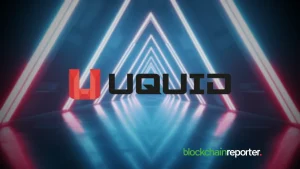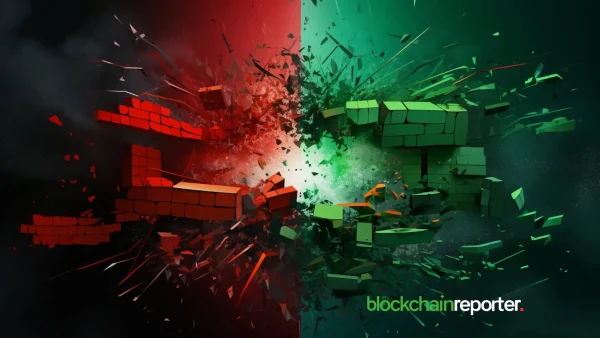
DeFi protocols rely on a variety of Web3 service providers, including keepers for liquidation triggers and block producers for transaction inclusion in blocks. These services are crucial for the functioning of DeFi, but they come at a high cost. Third-party entities exploit any vulnerabilities in the design of these services to extract maximum value from DeFi protocols. Without a viable solution, this exploitation exceeds the scale of even the most significant smart contract exploits in history each year, met mostly with silent acceptance.
To illustrate, Aave has executed liquidations totaling $2 billion in the last three years, with over $100 million allocated as liquidation bonuses. While preventing missed triggers is crucial, the fact remains that a substantial portion, often 99.9%, of the liquidation revenue is captured by the block producer instead of the liquidator. This underscores a significant opportunity for enhancement in the current system.
API3 has elevated the concept of Oracle Extractable Value (OEV) as a comprehensive solution to address the concerns of its users. By granting oracles the primary option to claim any leaked value, API3 aims to capture and subsequently return this value to the corresponding DeFi protocols. This proposal essentially presents these protocols with a substantial additional revenue stream alongside their existing positions.
Disrupting the Oracle Landscape
OEV is a complementary element to the concept of first-party oracles, a fundamental idea introduced in the API3 whitepaper. First-party oracles derive their maximum security and cost efficiency from being directly powered by API providers. Nevertheless, the involvement of API providers necessitates a sustainable business model, and the lack thereof has allowed third-party oracles to dominate the market by reselling data obtained from API providers.
Allocating a portion of the OEV to be distributed among API providers is strategically poised to disrupt the current landscape. This distribution scales proportionally with the value generated by each update in the data feed, providing API providers with a compelling incentive to actively manage and assert control over their data within the Web3 ecosystem.
This model is also appealing to DeFi protocols, as the payment is funded by external entities that miss out on extracting the corresponding value. API3’s role is to construct the platform that facilitates this framework, and the motivation for its development is reinforced by using a segment of the OEV to repurchase and subsequently burn API3 tokens.
Introducing the OEV Network
Today, API3 has unveiled the OEV Network, a ZK-rollup designed to capture OEV from all decentralized applications (dApps) utilizing API3 data feeds across various blockchain networks. The OEV Network functions as a specialized order flow auction platform, auctioning off the rights to execute specific data feed updates for individual dApps to the highest bidder.
The winning bidder makes the payment while executing the data feed update, enabling the dApp to promptly receive the proceeds on its native blockchain. This operates as a parallel system to API3’s regular data feeds, allowing dApps using API3 data feeds to effortlessly activate the OEV Network and commence earning.
Creating a system capable of effectively scaling to capture all OEV poses a formidable challenge, involving not just technical complexities but also trust-related considerations. The OEV Network addresses this challenge by serving as the crucial component, as on-chain auctions set the gold standard for security, accessibility, transparency, and accountability. This approach establishes an immutable record of past auctions, facilitating end-to-end auditing by any third party.
The OEV Network is set to leverage the Polygon CDK, a framework tailored for the development of customized ZK-rollups. API3 has opted for a partnership with Polygon based on its trust in the technical expertise provided by Polygon’s solutions. The enthusiasm expressed by various projects and service providers for Polygon CDK adds to the optimism surrounding the potential for a resilient ecosystem that the OEV Network can harness in the future.
The initial version of the OEV Network will take the form of a singular Validium deployed on the Ethereum mainnet, utilizing ETH as the gas token. This setup will undergo continuous refinement to adapt to the evolving requirements of the platform. API3 is collaborating with Gateway FM to construct and manage the OEV Network. The Sepolia testnet is already operational, inviting interested users to explore and test the functionality.
> Network name: OEV Network Sepolia testnet
> RPC URL: https://oev-network-sepolia-testnet-rpc.eu-north-2.gateway.fm
> Chain ID: 736160594
> Currency symbol: testETH
> Block explorer URL: https://oev-network-sepolia-testnet-blockscout.eu-north-2.gateway.fm
> Bridge URL: https://oev-network-sepolia-testnet-bridge.eu-north-2.gateway.fm
In essence, the OEV Network not only introduces a novel economic model but also sets a standard for security, accessibility, and transparency, reinforcing the potential for a paradigm shift in the decentralized oracle space. As the ecosystem evolves, the OEV Network is poised to play a pivotal role in reshaping the dynamics of value extraction in the Web3 landscape. Interested projects can engage with API3 and explore the possibilities of leveraging the OEV Network to enhance their DeFi protocols.









